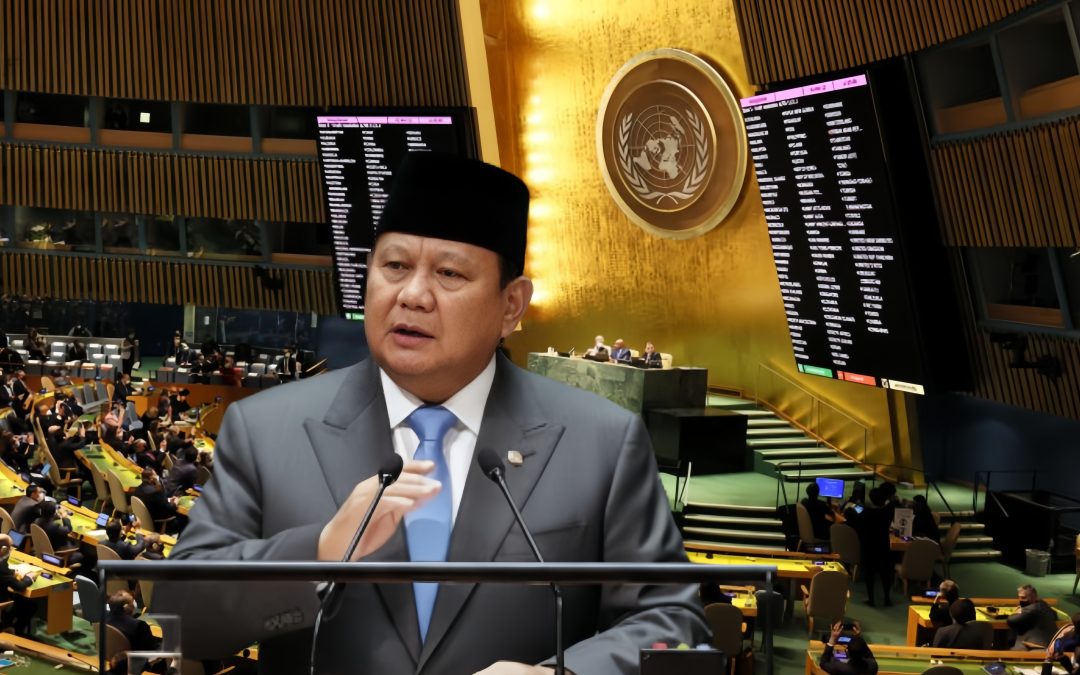On December 1, 2024, South Africa officially assumed responsibility as chair of the G20 for the year 2025, replacing Brazil, which had held the position since December 1, 2023. There are high hopes for South Africa’s presidency, but concerns about the effectiveness of the G20 have also emerged among world leaders.
The Global South’s Interests in the G20
South Africa has set the main theme for the G20 agenda in 2025 as “Fostering Solidarity, Equality, and Sustainable Development,” with the primary goal of addressing the global challenges currently faced by the international community, particularly those related to African development. Climate change, food security, the energy crisis, and foreign debt are significant challenges that have impacted African development.
The main focus of South Africa’s presidency includes addressing poverty, unemployment, and inequality, with a priority on African development in line with the “Agenda 2063: The Africa We Want” initiative launched by the African Union.
South Africa is paying special attention to the infrastructure development and global governance reform agenda, which has been a concern for G20 leaders since the G20 Summit was held in the United States in 2008.
South Africa’s presidency plays an important role for a number of reasons.
First, South Africa’s chairmanship will mark the first time that the G20 summit will be held on the African continent, after the G20 summits were held in North America, Europe, Asia, and South America.
Second, South Africa is the last country in the G20 summit hosting cycle since the G20 held its first summit in Washington, DC, in 2008. After South Africa, the United States will once again assume the G20 presidency in 2026.
Third, South Africa is the fourth country to represent the Global South since Indonesia became G20 president in 2022, followed by India in 2023 and Brazil in 2024. The interests of Southern countries have been a focus since Korea chaired the G20 in 2010. Especially since Indonesia’s presidency, which positioned itself as an advocate for the interests of developing countries, the Global South has become a key agenda item within the G20. The 2025 G20 summit coincides with the 70th anniversary of the 1955 Asian-African Conference in Bandung. South Africa was one of the 29 countries present at the conference, which laid the groundwork for the solidarity of nations in Asia and Africa.
Fourth, this chairmanship is also considered important because South Africa is the third BRICS member, after India and Brazil, to hold the G20 Presidency. The existence of BRICS is often associated with the maneuvers of countries competing with the US and G7, which are determined to build an alternative power outside the hegemony of the West. The forum was established in 2006 when the leaders of Brazil, India, China, and Russia met in St. Petersburg, Russia, during the G8 summit. BRICS was formalized in New York when the foreign ministers of the four countries gathered at the General Debate of the United Nations. The first BRIC summit was held in Yekaterinburg, Russia, on June 16, 2009.
South Africa joined BRICS in 2010 and first participated in the third BRICS summit in Sanya, China, on April 14, 2011.
Under the Shadow of the Trump Threat
South Africa’s position and role in the current global political landscape also make the G20 Summit in South Africa increasingly important.
South Africa is a country that has dared to confront Israel since Israel invaded Gaza on October 7, 2023. This confrontation has also positioned the country, once led by Nelson Mandela, the anti-apartheid leader, in opposition to the United States, the initiator of the G7 and G20.
On December 29, 2023, South Africa filed an application with the International Court of Justice regarding Israel’s acts of violence in the Gaza Strip under the Genocide Convention. South Africa demanded that Israel protect the rights of the Palestinian people and comply with the Genocide Convention by refraining from committing genocide in Gaza.
On March 6, 2024, and May 10, 2024, South Africa reinforced its claims against Israel with additional evidence. South Africa’s actions have received support from a number of countries, including Nicaragua, Colombia, Libya, Mexico, Palestine, Spain, Turkey, Chile, the Maldives, and Bolivia.
The United States appears to be disturbed by South Africa’s maneuver in bringing the case of Israel, its main ally in the Middle East, to the International Court of Justice based in the Netherlands. The US has issued the US-South Africa Bilateral Relations Review Act, a law issued to review US-South Africa bilateral relations. The US president must explain to Congress whether South Africa has become a threat to US national security or US foreign policy interests.
The U.S. Secretary of State has already stated that he will not attend the G20 Foreign Ministers’ Meeting in Johannesburg, South Africa, on February 20-21, 2025, citing the following reasons: “South Africa is doing very bad things. Expropriating private property. Using the G20 to promote ‘solidarity, equality, and sustainability.’ In other words: DEI and climate change.”
President Trump himself has threatened to cut US foreign aid to South Africa for various reasons.
The US challenge to the G20
In the context of the heated relations between South Africa and the US, the G20 faces a serious challenge. However, it is precisely this challenge that will be an important test for South Africa’s chairmanship and other G20 leaders. Under Trump, the US has demonstrated an attitude that does not support multilateralism and collective global efforts to address climate change.
Trump has also announced threats to impose additional tariffs on Canada, Mexico, and China for allegedly being a conduit for the entry of narcotics, including substances that are dangerous to US citizens. This unilateral action shows that the US is not complying with WTO rules, which have always been upheld by the G20.
Trump also decided to reevaluate foreign aid to developing countries channeled through the US Agency for International Development (USAID) with consideration of efficiency and consistency with foreign policy under the America First agenda. To that end, the US froze US foreign aid.
This decision by the US is clearly inconsistent with the commitments made by G20 leaders in 2011, where G20 leaders agreed to increase their foreign aid to support the development of developing countries, particularly the poorest nations. Trump appears to have never been interested in development issues in Africa for various reasons, including priorities related to the America First agenda and the U.S. response to China’s growing influence in Africa.
Regardless of the situation, South Africa must be able to rally support from G20 countries to renew important agreements on multilateralism, sustainable development commitments, and climate change in the context of the current polycrisis. During Trump’s first term as US president, the US’s positions within the G20 indeed posed challenges for G20 leaders committed to upholding G20 agreements. This time, the challenge is undoubtedly more daunting. There are sufficient reasons to strengthen South Africa’s leadership in this far more challenging moment.
References:
Application of the Convention on the Prevention and Punishment of the Crime of Genocide in the Gaza Strip (South Africa v. Israel), https://www.icj-cij.org/sites/default/files/case-related/192/192-20241009-pre-01-00-en.pdf
Evolution of BRICS, https://brics2021.gov.in/about-brics#:~:text=2009%2CRussian%20Federation-,Evolution%20of%20BRICS,Outreach%20Summit%20in%20July%202006.
Vandome, Christopher (2025). “South Africa’s G20 Presidency is a chance for the West to engage with Global South Priorities.” https://www.chathamhouse.org/2025/01/south-africas-g20-presidency-chance-west-engage-global-south-priorities
Group of Twenty (G20) Summit 2025. https://www.esastap.org.za/g20-summit-2025/
DIRCO. “Special Address by President Cyril Ramaphosa at the World Economic Forum on South Africa’s G20 priorities, Davos-Klosters, Switzerland, 21 January 2025,” https://dirco.gov.za/special-address-by-president-cyril-ramaphosa-at-the-world-economic-forum-on-south-africas-g20-priorities-davos-klosters-switzerland-21-january-2025/
H.R. 7256 – US-South Africa Bilateral relations Review Act, https://www.congress.gov/bill/118th-congress/house-bill/7256#:~:text=This%20bill%20requires%20the%20President,security%20or%20foreign%20policy%20interests.
“Why Trump and South Africa are at odds.” https://time.com/7213703/trump-south-africa-elon-musk-white-land-expropriation-act-explainer/
“Implementing the President’s Executive Order on Reevaluating and Realigning United States Foreign Aid.” https://www.state.gov/implementing-the-presidents-executive-order-on-reevaluating-and-realigning-united-states-foreign-aid/






